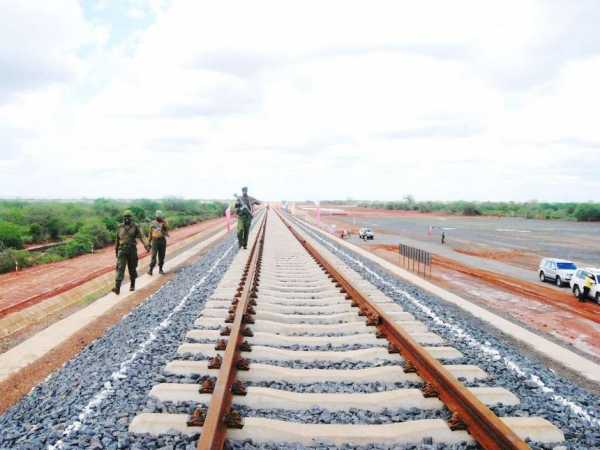
Three quarters of the Sh425 billion financing agreements that Kenya signed with China last month will go towards the construction of the Kenyan section of a high-speed railway linking Mombasa to Bujumbura.
Infrastructure Cabinet Secretary Michael Kamau on Monday said about Sh318.75 billion ($3.75 billion) will be used to build infrastructure and buy locomotives and wagons for the planned standard gauge railway.
“Some $2.5 billion will go to constructing the railway and about $1.25 billion is for rolling stock,” said Mr Kamau.
Part of the loan is being extended to Kenya on concessional terms and will attract interest rates of up to two per cent. Interest rates for the commercial part of the funding, Mr Kamau said, will be pegged at 3.6 per cent above the LIBOR rate — an international interbank interest rate.
EASE TRANSPORT
The standard gauge railway will link Kenya, Uganda, Tanzania, Rwanda, Burundi and South Sudan in a move that will ease cargo transportation in the region. Construction of the Kenyan stretch of the railway is slated to start in November.
A grace period on the repayment of the loan will cover the construction period, a process that is expected to end in 2018. Kenya will supplement the Chinese funds through an estimated Sh22 billion, which will be collected through a 1.5 per cent import levy currently being implemented by the government.
Mr Kamau also said the government plans to open up the sector to more private sector players once the standard gauge railway is operational. Under the plan, the government owned Kenya Railways Corporation would assume the role of industry regulator.
“We are going to work on a system where we would even want private investors to operate their own trains,” he said.
This plan would see Kenya emulate similar strategies that have been implemented in the European Union and the United States. Increased competition in the sector could lead to lower costs for rail users.
Currently, the Rift Valley Railways (RVR) is mandated to operate rail services in Kenya under a 25-year deal. Efforts to liberalise the sector further might set the government on a collision cause with RVR, given the existing arrangement to manage Kenya’s railway infrastructure.
However, in a statement to the Nation on Monday, RVR said it was meeting key targets set by the Kenyan and Ugandan governments and that it was ready to face increased competition in the sector.
“Competition/number of operators on SGR (standard gauge railway) is the government’s prerogative. RVR is not fazed by the SGR as it is fast turning around the railway business through investments to improve the railway track, expand haulage capacity and introduce state-of-the-art technology,” an RVR spokesperson said.
EXTENDED TO S. SUDAN
Heads of State from Kenya, Uganda and Rwanda first struck an agreement to build the new railway together in June. During an Infrastructure Summit last week, it was agreed that SGR be extended to South Sudan and Burundi.
The standard gauge railway will be able to move freight trains at speeds of up to 120 kilometers per hour, while passenger speeds will be about 180 kilometres per hour. Once the project is completed, it is expected that a train will cover the distance from Mombasa to Nairobi in four hours and 30 minutes.
Source: nation.co.ke







